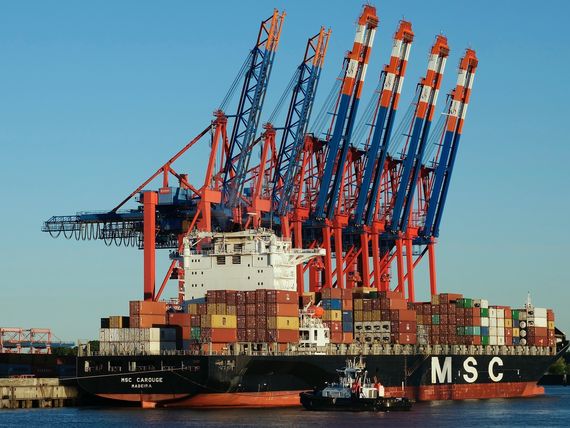MSC announces new bunker recovery charge

December 3, 2018 - Mediterranean Shipping Company (MSC) has announced new bunker charges as of January 1, 2019 to comply with the 2020 sulfur cap, which is anticipated to cost the shipping industry $60 billion annually.
MSC has estimated that the cost of the various changes it is making to its fleet and its fuel supply is in excess of $2 billion dollars per year. “We believe that it is essential to segregate transparently the burden of fuel costs, in order for this cost to be passed on visibly throughout the supply chain. Passing on that cost is also vital to ensure the sustainable future of the container shipping industry,” said the company in a statement.
MSC's new Bunker Recovery Charge (BRC) replaces the current Bunker Contribution (BUC), Fuel Adjustment Factor (FAD) and Emergency Fuel Surcharge (EFS), and largely absorbs other pre-existing fuel-related charges. Charges specifically related to coastal Emission Control Areas (ECAs) will remain in place. For reefer cargo, the charge will be BRC x 1.5 due to the additional cost of electricity generation to power the reefers.
The company has a fleet of 510 vessels with a total capacity of 3.3 million TEUs. It is planning a mixed response to the sulfur cap including the installation of scrubbers on some vessels and the use of low sulfur fuel on others.
MSC joins a growing number of container shipping companies to introduce new charges ahead of the sulfur cap. In October, OOCL announced for a bunker recovery charge. The company expects the additional costs of complying with the cap to be well above half a billion dollars.
Hapag-Lloyd also announced new charges and estimated that its additional costs will be around $1 billion in the first years. CMA CGM announced a surcharge to cover an additional average cost of $160 per TEU, based on current conditions. In announcing its surcharge, Maersk Line said it expected extra fuel costs of at least $2 billion annually.
Source: The Loadstar


